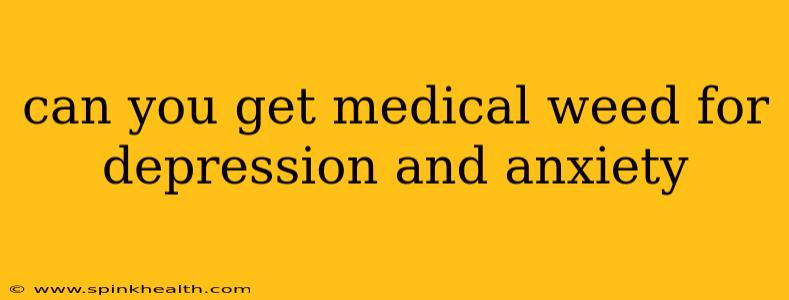Can You Get Medical Weed for Depression and Anxiety? A Journey Through the Complexities of Cannabis and Mental Health
The question of whether medical cannabis can alleviate depression and anxiety is a complex one, fraught with both promise and uncertainty. It's a journey that involves navigating legal landscapes, understanding the science behind the plant, and acknowledging the diverse experiences of patients. Let's embark on this journey together.
My name is Sarah, and I've spent years researching the intersection of cannabis and mental health. While I am not a medical professional, my research has allowed me to understand the nuances of this topic and the importance of responsible information sharing. Always consult with your doctor before making any decisions about your health, especially concerning medication.
Is Medical Marijuana Legal for Depression and Anxiety?
The legality of medical cannabis varies drastically depending on your location. Some states and countries have fully legalized medical marijuana, allowing access with a doctor's recommendation for various conditions, including depression and anxiety. Others have more restrictive laws, only permitting cannabis for specific, limited conditions, or have not legalized it at all. It's crucial to research your local laws and regulations.
Understanding the Legal Landscape: The evolving legal framework around medical cannabis makes it difficult to give a simple "yes" or "no" answer. Even within states where medical marijuana is legal, the specific conditions covered and the access procedures can differ significantly.
What are the Potential Benefits of Cannabis for Depression and Anxiety?
Many patients report that cannabis helps manage their depression and anxiety symptoms. Some believe it helps reduce feelings of sadness, hopelessness, and worry, while others find it improves their sleep, appetite, and overall mood. However, it's crucial to understand that the scientific evidence supporting these claims is still emerging and not conclusive.
The Role of Cannabinoids: The effects of cannabis are largely attributed to its active compounds, cannabinoids, such as THC (tetrahydrocannabinol) and CBD (cannabidiol). THC is primarily responsible for the psychoactive effects, while CBD is generally considered non-psychoactive. Research suggests that different ratios of THC and CBD might be beneficial for different individuals and conditions.
What are the Potential Risks and Side Effects?
While cannabis can potentially offer relief from depression and anxiety, it's not without its risks. Some potential side effects include:
- Increased anxiety or paranoia: Especially with high THC strains.
- Cognitive impairment: Difficulty with concentration, memory, and decision-making.
- Drowsiness or sedation: Affecting daily functioning.
- Addiction: Though less common than with other substances, dependence is possible.
- Interactions with other medications: Cannabis can interact negatively with other medications, potentially leading to adverse effects.
The Importance of Dosage and Strain: The type of cannabis (strain), dosage, and method of consumption (smoking, vaping, edibles, etc.) significantly impact the experience and potential risks.
How Does Cannabis Interact with Other Medications?
This is a critical concern. Cannabis can interact with various medications, potentially increasing or decreasing their effectiveness or causing adverse reactions. It is absolutely essential to discuss your current medication regimen with your doctor before considering cannabis for depression and anxiety.
Are There Alternative Treatments for Depression and Anxiety?
Yes, there are many other effective treatments for depression and anxiety, including:
- Therapy: Cognitive Behavioral Therapy (CBT) and other forms of therapy are often highly effective.
- Medication: Antidepressants, anti-anxiety medications, and other psychiatric medications can be beneficial.
- Lifestyle changes: Exercise, healthy diet, sufficient sleep, and stress-management techniques can significantly impact mental well-being.
Conclusion:
The use of medical cannabis for depression and anxiety is a personal decision with potential benefits and risks. The legal landscape is constantly changing, and the scientific evidence is still developing. Always consult with your healthcare provider before considering any form of cannabis treatment. They can assess your individual situation, discuss potential risks and benefits, and help you make an informed decision that prioritizes your health and well-being. It's crucial to approach this topic responsibly and with a thorough understanding of the complexities involved.

